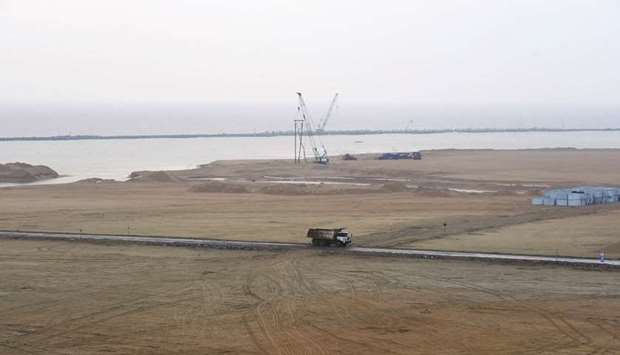Since Sri Lanka and China started joint operation of Hambantota Port in southern Sri Lanka, there have been doubts over the profitability and the future of the port.
However, the smooth and excellent performance of the port and the properly addressing concerns of the former employees have proven that time will answer all doubts lingering over China-Sri Lanka
co-operation in Hambantota Port.
Indeed, Hambantota Port had witnessed a relatively slow pace of growth and development in the past. However, with the great potential of the port gradually realised and the joint venture established between Sri Lanka Ports Authority and China Merchants Port Holdings (CMPH) to co-develop the port, the operation of Hambantota Port has
remarkably improved.
Tissa Wickramasinghe, chief operating officer of the joint-venture Hambantota International Port Group, told Xinhua recently that since the joint venture took over the operation of the port in December, the port has been functioning “extremely well,” with the roll on-roll off (RO-RO) business picking up more than expected.
Major global players in the RO-RO business have all visited the port, with a view to developing new transshipment and related businesses, the chief
operating officer said.
“We are also receiving many overseas inquiries for the development of new break-bulk and bulk-cargo business, which has been only made possible by leveraging on the global network of CMPH.”
The future of the Sri Lanka-China co-operation in Hambantota Port is promising, just as Sri Lankan Prime Minister Ranil Wickremesinghe said at the official launching of the joint venture, “We have made arrangements for the management and long-term success of Hambantota Port. The operations of the joint venture will ensure an additional port in the Indian Ocean.”
Today, Hambantota Port, located near the main shipping route, is prospering every day and gains increasing confidence from the Sri Lankan community.
Lasantha Wickremesooriya, senior fellow at the Institute of National Security Studies, said that for the flow of vessels between the West and the East, the major transshipment hub is Singapore. But he added that Hambantota Port is more economical for them.
“With the technical knowhow, marketing knowhow, and the investment capability by CMPH, the port will eventually turn into a profitable venture in the future with more modern vessels
coming in,” he said.
Mangala PB Yapa, managing director of the Agency for Development at the Sri Lankan ministry of development strategies and international trade, also expects a bright future of
Hambantota Port.
“We are confident that this collaboration and partnership will bring in success to Sri Lanka and our partner CMPH. A commercially viable and efficient Hambantota Port will be catalytic in the economic development of the south of the country and resulting in better livelihood for the people in that part.”
As an example of fruitful co-operation between China and Sri Lanka within the framework of the Belt and Road initiative, the joint venture, in essence, is also a case of commercial restructuring between the Sri Lanka Port
Authority and CMPH.
A truck driving along the site of a Chinese-funded $1.4bn reclaimed land next to Colombo’s main seaport. China will invest $1bn in the construction of three 60-storey buildings at a mega-project near Sri Lanka’s main port.

